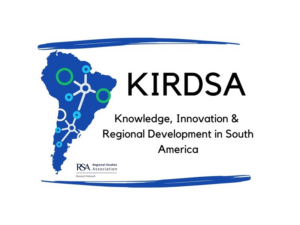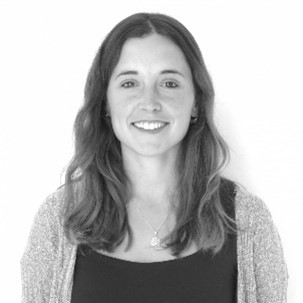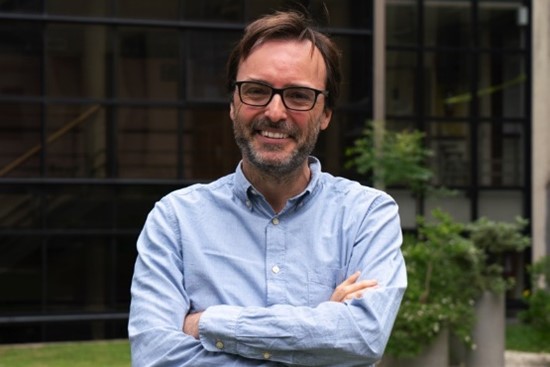RSA Events – Event report – International Conference on Regional Development in South America by The Knowledge, Innovation and Regional Development in South America (KIRDSA)

RESEARCH NETWORK TITLE: Knowledge, Innovation and Regional Development in South America (KIRDSA)
EVENT TITLE: II International Conference on Regional Development in South America
DATE AND PLACE OF EVENT: February 25, 26, and 27, 2025, Campinas (Brazil)
ORGANISER(S)’ NAME(S): Andrea Belmartino; Pablo Galaso; Sergio Palomeque (email)
This research network aims to promote research on regional development in South America, focused on knowledge flows and innovation capabilities. Knowledge capabilities are unevenly distributed within national and subnational territories in South America, a region characterized by a peripheral but significant role in global knowledge production. These countries have a rich background of research in this field, which is associated with urban development, production agglomerations, emigration fluxes, and the role of universities, among others. It is highly relevant to articulate research activities to advance our understanding of the regional development processes that promote knowledge creation and improve access to global knowledge flows. This network aims to contribute to facing these challenges by producing relevant evidence and discussing it with policymakers.

What was the aim of this event?
The International Conference on Regional Development in South America aimed to bring together researchers focusing on creating and disseminating knowledge in the South American context, emphasizing development processes with a territorial approach in the region’s countries. While researchers at various career stages participated, the conference also aimed to provide a dedicated space for young scholars from the region. To achieve this, we received support from the YSI. The event presented discussions on various topics, including innovation and development in territories specializing in extractive industries, collaboration networks in innovation processes, productive specialization and technological diversification in South American regions, local development, clusters, and industrial districts, environmental challenges and green transitions, migration dynamics, and the role of cities as poles of development, innovation, and inequality. The conference aimed to foster a multidisciplinary dialogue, encouraging theoretical contributions, methodological innovations, and empirical studies. Proposals presenting implications for designing public policies for innovation and regional development in South American countries were particularly discussed, reflecting the conference’s broader goal of empowering knowledge flows and collaboration networks in the region.
How many people (speakers and delegates) attended the event?
During the conference, 46 papers were presented and selected from among the 85 submissions received following the call for papers. To present these 46 papers, 53 researchers from 11 countries and 29 universities participated in the conference. Additionally, the director of the Institute of Economics—University of Campinas attended the congress, along with four academics/policymakers from countries in the region who comprised the panel on public policy (see the program below). In total, 60 speakers and delegates attended the event.
Program and outline of the event
The conference program was designed to offer diverse sessions, workshops, and keynote presentations to address various facets of South America’s regional development. Sessions included paper presentations, panel discussions, workshops, and keynote addresses, providing ample opportunities for participants to engage with cutting-edge research and exchange ideas. Notable sessions included seminars on economic complexity, skills, and racial inequality in Brazil and workshops focusing on paper development. Additionally, parallel sessions delved into regional specialization, urban innovation ecosystems, and sustainable development strategies. The program also sought to provide space for sessions dedicated specifically to young scholars, integrating these sessions with others open to established researchers, fostering a dynamic and inclusive academic environment. This program, which included details about the venue, social activities, useful links, and a map, was distributed via QR code instead of printing to reduce the event’s environmental impact.
For the detailed program, please contact Andrea Belmartino, Pablo Galaso or Sergio Palomeque via kirdsa.rsa@gmail.com
Social activities organised as part of the event
In addition to the academic program, the conference provided participants with a variety of social activities designed to promote informal networking, cultural exchange, and community building. On the first day, an early social gathering was held at the campus hotel restaurant, Casa do Professor Visitante, where many participants were staying. The following day, attendees visited the Emporio do Nono restaurant, where they enjoyed drinks and traditional Brazilian cuisine in a setting rich with local character. The highlight of the social activities was the Roda de Samba, which participants attended after the conference concluded. This event offered an excellent opportunity to experience the vibrant carnival atmosphere in Campinas while enjoying a typical Brazilian artistic performance at Alma Campinas. To enhance communication among participants, a WhatsApp group was created. This chat remained active throughout the event and for several days afterwards, allowing participants to share links, locations, photos, and announcements.
Conclusions of the Event: Advancing Regional Studies
This second conference significantly advanced the objectives of the KIRDSA research network. Through diverse sessions and workshops, the conference promoted education and stimulated research in regional studies. Keynote presentations by renowned scholars such as Ron Boschma, Carlos Bianchi, Verónica Roberts, Gabriel Pacheco and Sergio Petralia showcased the latest advancements in the field, contributing to intellectual leadership. Parallel sessions and mentorship workshops provided platforms for knowledge exchange, supporting the development of members and fostering collaboration within the community.
The conference delivered high-quality regional research, covering topics like economic complexity, innovation ecosystems, and research collaboration networks. These contributions expanded our understanding of regional dynamics and laid the groundwork for future investigations. Influence on policy debate and practice emerged as another significant outcome of the event. Roundtable discussions, such as the one chaired by Renato García, brought together policymakers and academics, to deliberate on key challenges facing Latin American regions. By bridging research and policy, the conference aimed to inform evidence-based decision-making and promote sustainable regional development initiatives. Finally, emphasizing innovation in publishing, the conference encouraged novel approaches to disseminating research outcomes. Interactive workshops and paper development sessions aimed at young scholars explored creative avenues for communication, ensuring widespread access to knowledge. In conclusion, the II International Conference on Regional Development in South America has been instrumental in advancing the goals of KIRDSA. By promoting education, stimulating research, fostering collaboration, influencing policy, and innovating in publishing, the event has made significant strides toward addressing the complex challenges facing South American regions.
Future actions (planned events, outputs, follow-up of the event, publications)
During the conference, discussions were held regarding the organization of the third KIRDSA event. Meetings were conducted with potential collaborators, and as a result, at the closing session of the event, it was announced that the III International Conference on Regional Development in South America will take place in Buenos Aires in February 2026. Additionally, opportunities have emerged to organize additional events in collaboration with participants, further expanding the reach and impact of KIRDSA activities. Furthermore, the KIRDSA network is exploring the possibility of preparing a special issue for the journal Re**Follow-Up Actions**
During the opening session of the conference, it was emphasized that the Association received support from the RSA, highlighting the collaborative relationship between the two organizations. Prof. Ron Boschma encouraged attendees to apply for RSA funding opportunities, such as the MeRSA and Research Network Grant, noting the RSA’s interest in involving projects and researchers from the Latin American region. Information about these funding opportunities was shared in the conference’s WhatsApp group to ensure it reached all participants.
Looking ahead, it was announced at the conference that the KIRDSA research network will organize a third event next year, with details to be published soon. Overall, these promotional efforts aim to strengthen the Association’s presence within the academic community and foster ongoing collaboration and engagement with the RSA and its affiliated networks. While this initiative is in the planning stages, the network is confident in the response from potential contributors given the high quality of submissions received and the promising outlook for future events. Finally, the research network’s mailing list will be updated to include all conference participants to keep them informed about upcoming events and news related to KIRDSA. This will ensure ongoing engagement and communication within the network.
Follow up actions
In the opening session of the conference, it was highlighted that the Association received support from the RSA, emphasizing the collaborative relationship between the two organizations. In this session, Prof. Ron Boschma encouraged attendees to apply for RSA funding opportunities, such as the MeRSA and Research Network Grant, underlining the RSA’s interest in incorporating projects and researchers from the Latin American region. Information about these funding opportunities was shared in the conference’s WhatsApp group to ensure widespread dissemination among participants. Looking ahead, it was announced during the conference that the KIRDSA research network will organize a third event next year, with details to be published soon. Overall, these promotional efforts aim to strengthen the Association’s presence within the academic community and foster ongoing collaboration and engagement with the RSA and its affiliated networks.
The authors of this report
Andrea Belmartino
PhD in Urban Studies and Regional Science at GSSI (Italy). Post-doctoral researcher at Universita degli Study di Sassari (Italy). Her research interest focuses on green economy, sustainable transition and innovation drivers/barriers.

Pablo Galaso
PhD in Economics from Universidad Autónoma de Madrid. Former Lecturer at UAM (2007-2013), now Associate Professor at Universidad de la República. His research interests include network analysis, innovation, and economic development. Active in collaborative projects and publications in these fields.

Sergio Palomeque
PhD in Economics at the University of Buenos Aires. Assistant Professor at Universidad de la República. An active member of the Uruguayan System of Researchers, focusing on social network analysis, innovation, and economic geography. Publishes and collaborates extensively, teaching undergraduate and postgraduate courses.

More information
Photographs of the event
Complete program